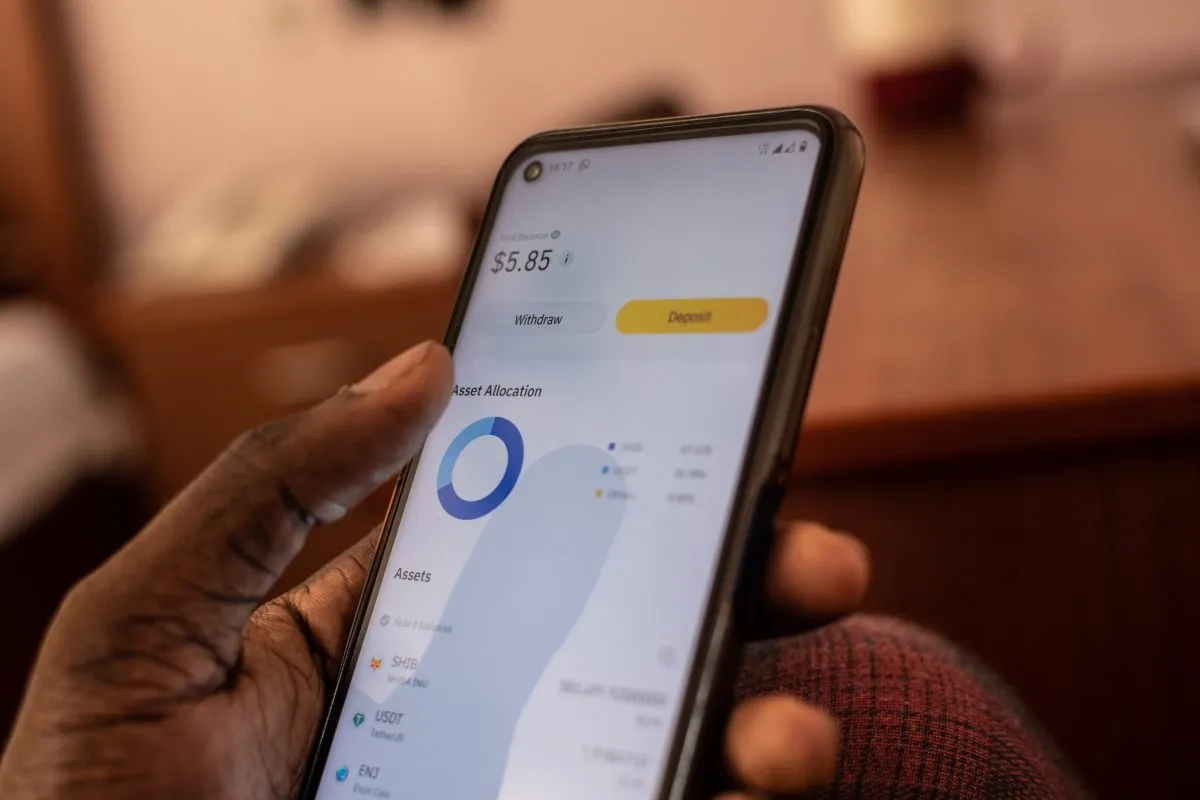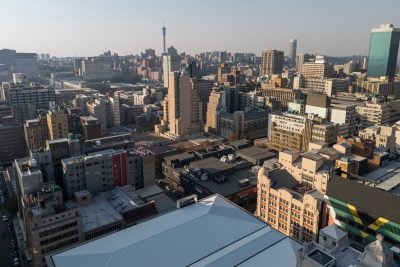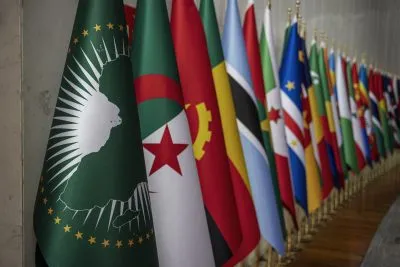“The attention of the Securities and Exchange Commission has been drawn to the website operated by Binance Nigeria Limited, soliciting the Nigerian public to trade crypto assets on its various web and mobile-enabled platforms,” Nigeria’s SEC announced at the start of June.
“Binance Nigeria is neither registered nor regulated by the Commission and its operations in Nigeria are therefore illegal. Any member of the investing public dealing with the entity is doing so at his/her own risk.”
The Nigerian SEC’s move against Binance, the world’s largest cryptocurrency trading platform, followed similar moves from its counterpart organisation in the United States. Just a few days before its announcement, the US SEC filed 13 charges against Binance entities, accusing the company and their founder Changpeng Zhao “with a variety of securities law violations”.
The chair of the American regulator, Gary Gensler, said that “through thirteen charges, we allege that Zhao and Binance engaged in an extensive web of deception, conflicts of interest, lack of disclosure, and calculated evasion of the law.” While Binance and Zhao have denied all the charges, it came as little surprise to most observers when the Nigerian SEC followed suit.
There was, however, a twist. Zhao – known as “CZ” to his legion of online followers – denied that Binance Nigeria was anything to do with him or his company.
Nine days after the Nigerian’s SEC charge, Zhao tweeted: “Binance have issued cease & desist notice to the scammer entity ‘Binance Nigeria Limited.’ Don’t believe everything you read in the news.”
Who is behind Binance Nigeria?
This development has raised eyebrows in some quarters. Documents available on Nigeria’s Corporate Affairs Commission, the country’s company registry, show that Binance Nigeria was registered as early as December 2019. While the company is marked as “inactive”, some are sceptical at the idea that the global Binance entity remained unaware of the Nigerian company for almost four years.
Accounts of what exactly Binance Nigeria was up to vary. Olaleye Oladimeji, a lawyer and founding partner of Legalpreneur Consulting in Lagos, tells African Business that “there is a possibility that an unaffiliated company was misrepresenting itself as representatives of another brand.”
“Furthermore, the company registry records of Binance Nigeria Limited does not show ownership by Binance. It is also possible that a company legitimately involved in another unrelated business activity may bear a fairly similar name to another company,” Oladimeji adds.
Oladimeji acknowledges that “contradicting information is being passed by the public through the rumour mills” and that it would be “in the best interest of the public that perceived ambiguities are clarified.”
There have been some attempts to do so. Reports suggest that the company was registered by a Nigerian lawyer, Ahassan Ifzal Mughal, who hoped to profit from selling the incorporated name onto Binance.
Mughal told reporters that “we are willing to hand over full control of Binance Nigeria Limited to Binance.com should they choose to legally enter into the Nigerian market, and are further available to provide our legal services to them in obtaining legal regulatory compliance in Nigeria.”
A Binance spokesperson told blockchain news website Mariblock: “We are aware of the circular. However, the entity mentioned in the circular [Binance Nigeria Limited] is not affiliated with us. We are therefore seeking clarity from the Nigerian SEC and remain committed to working with them cooperatively on the next steps.”
Liberalising trend
This confusion related to Binance’s activities in Nigeria comes at a time when authorities in the country are beginning to consider the potential of cryptocurrencies in a more favourable light. While regulators in the West African country have at times appeared unconvinced about crypto, recent moves from the SEC have suggested that Nigeria may be prepared to start liberalising its approach to digital assets. In May, the SEC announced that it would be offering digital exchanges the opportunity to apply for licences on a trial basis.
Modupe Ativie, a blockchain and cryptocurrency expert based in Port Harcourt, tells African Business that the new government led by Bola Ahmed Tinubu has made positive noises about the technology – and that the SEC’s charge against Binance therefore came as an unwanted surprise.
“This happening a few days after the Federal Government of Nigeria officially approved the adoption of blockchain as a technology to improve business processes initially came as a shock,” she says. “The federal government was very clear to mention that their approval was for blockchain and not cryptocurrencies, but we had still seen this as a step in the right direction.”
Perhaps even more concerning for pro-crypto figures in Nigeria is the fact that global headwinds are pointing towards more stringent regulation for cryptoexchanges. After the collapse of the Terra stablecoin in May 2022, and then the spectacular disintegration of the FTX exchange in November, which came about because of a liquidity crisis amid the alleged misuse of client funds, regulators around the world have moved to crack down on alleged wrongdoing.
Binance isn’t the only one to have been charged by regulators in the US and elsewhere. The US SEC has also charged global exchange Coinbase with selling unregistered securities, and has been embroiled in a long-running legal saga with blockchain payment network Ripple for similar reasons. While Nigeria has the independence to regulate the cryptocurrency industry as it sees fit, this global context could make it more difficult for advocates to argue successfully for more liberal rules.
Crypto trading unaffected
Despite Binance’s issues in Nigeria, and the global crackdown on crypto exchanges, Ativie does not believe that Nigerians have been deterred from using cryptocurrencies. She says that “cryptocurrency trade is still ongoing and hasn’t been affected or hindered in any way.”
Data shows that Nigeria is the second biggest market for crypto in Africa, after South Africa, with Nigerians being some of the most pro-crypto consumers anywhere in the world. Cryptocurrencies tend to be used in Nigeria to help resolve problems associated with limited access to formal banking structures and poor financial inclusion. Digital assets have proved to be particularly valuable for conducting cross-border remittances, a process which is often costly and time consuming with traditional fiat currencies.
There is no evidence that these attitudes have shifted in light of the regulatory issues Binance, and other global exchanges, have been confronted with. But how this controversy affects the attitudes of Nigerian regulators, if at all, remains to be seen.
Related articles
Nigeria launches eNaira – Africa’s first digital currency
Nigeria’s cryptocurrency problem has central bank scrambling
Want to continue reading? Subscribe today.
You've read all your free articles for this month! Subscribe now to enjoy full access to our content.
Digital Monthly
£8.00 / month
Receive full unlimited access to our articles, opinions, podcasts and more.
Digital Yearly
£70.00 / year
Our best value offer - save £26 and gain access to all of our digital content for an entire year!

 Sign in with Google
Sign in with Google 



